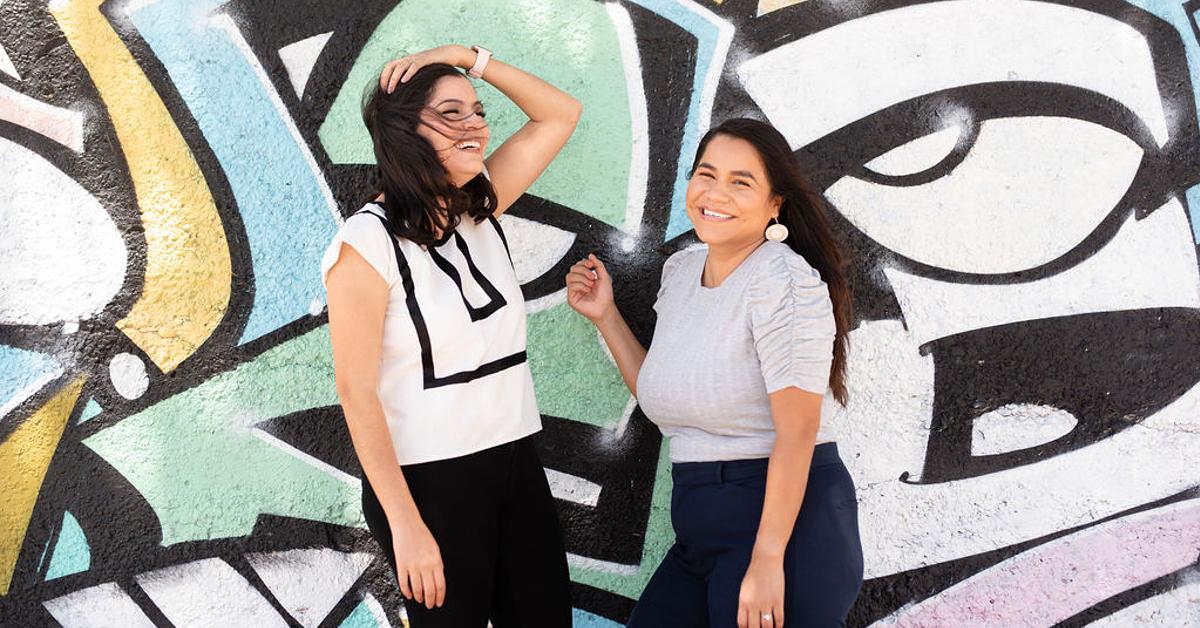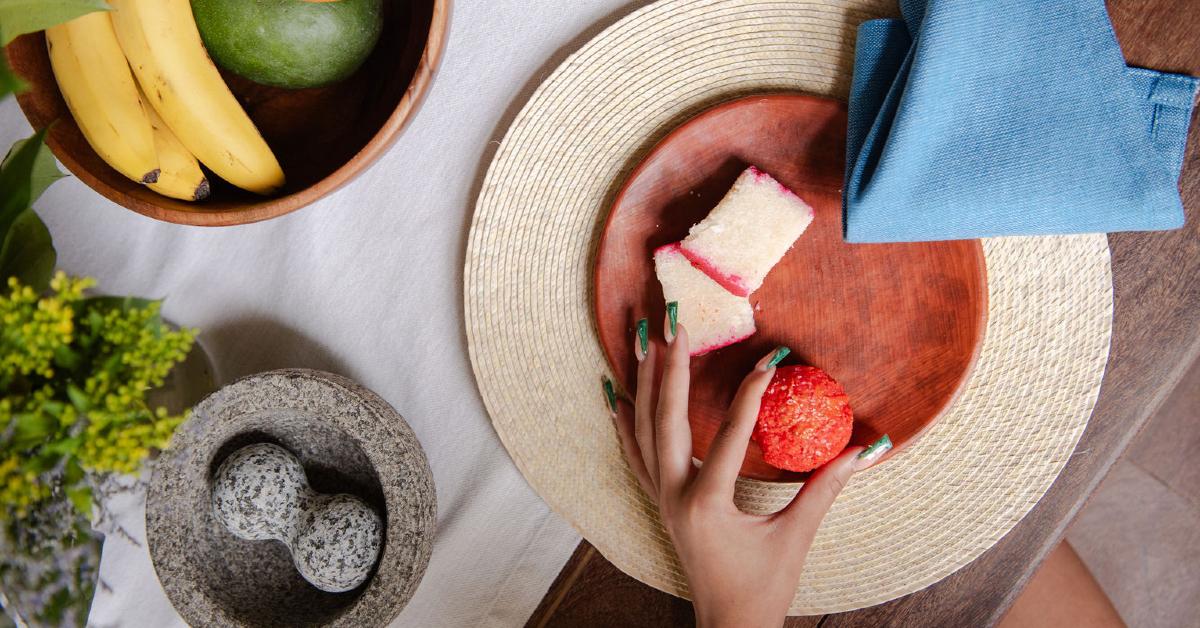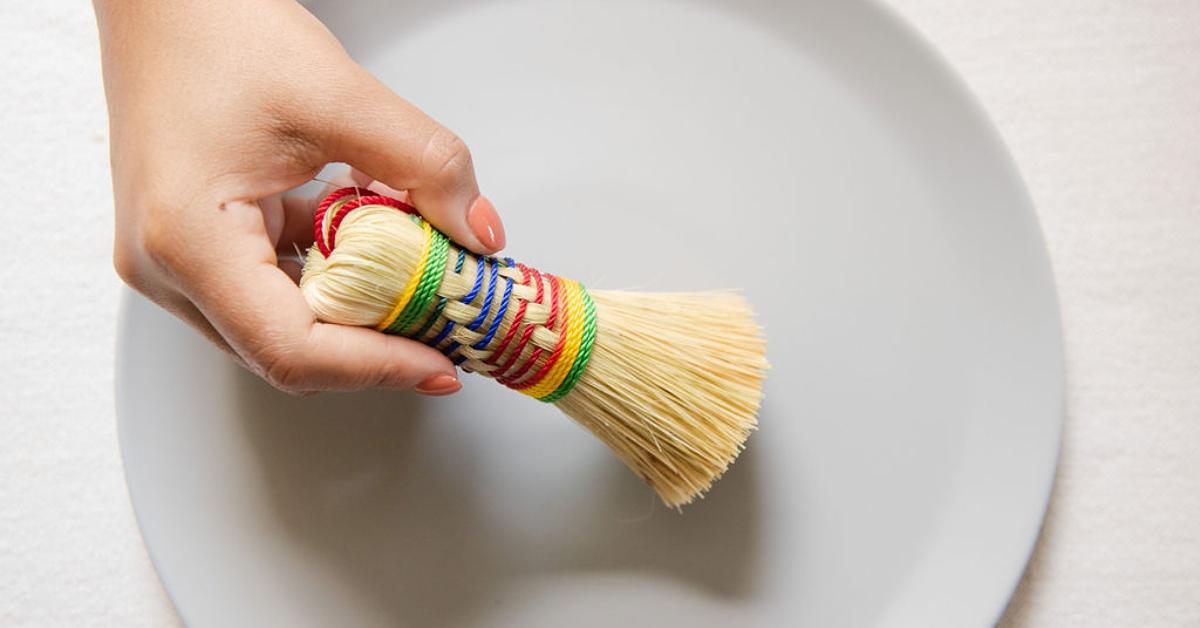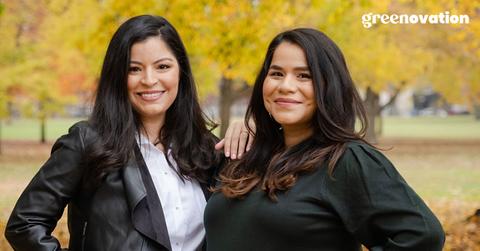Volver, meaning "return," and verde, meaning "green," come together to form the name of sustainable online marketplace VOLVERde, which proudly offers responsible low-waste bath, body, hair, and home products from a range of BIPOC-owned brands.
"Returning to green," co-founder Aidee SanMiguel exclusively tells Green Matters. "We always talk about our abuelita and going back to our sustainability basics that our ancestors always practiced."
Hearing the traditional Mexican beverage agua fresca be deemed "spa water" on TikTok was heartbreaking to VOLVERde co-founders Aidee and Mónica SanMiguel — and that's just one example of mainstream cultural erasure. The Mexicana SanMiguel sisters became fed up with watching their Latina culture be stripped from the sustainability movement.

Mónica and Aidee SanMiguel
"We didn't call it 'zero-waste.' We didn't have any of these trendy buzzwords," Mónica SanMiguel explains, referring to her childhood memories visiting family in Mexico, which often saw her and Aidee return empty Coca-Cola bottles to the corner store for reuse.
Hoping to reclaim the zero-waste narrative and honor Latinx sustainability traditions, the sisters left their corporate jobs to launch VOLVERde.
In conversation with Green Matters, Aidee and Mónica SanMiguel discussed the importance of authentic representation in the sustainability space, encouraging low-waste living from a cultural angle, and VOLVERde's impassioned mission.
This interview has been edited and condensed for length and clarity.

GREEN MATTERS: Pew Research found that 81 percent of Latinos surveyed believe climate change is a foremost concern. What does this say about cultural influences in the sustainability realm?
MÓNICA SANMIGUEL: Growing up first generation immigrants in this country, we lived very resourcefully. A lot of that was by need, but I think it was also inherited lessons from our grandparents who lived in a rural town in Mexico. Their fate literally rested on Mother Nature, and climate, and rainfall. That direct connection to nature is in our ancestry.
Our parents threw away things that had no more value. We're trying to reclaim that and bring folks to the sustainability conversation from a cultural angle, and not from a guilt and doom and gloom angle.

GM: Do you believe mainstream beauty companies exploit sustainable habits and routines with cultural roots?
AIDEE SANMIGUEL: We call our abuelita “the original zero-waster” — this isn't something new. Reusable paper towels, that's not new. Our parents would cut up T-shirts for cleaning. We have kids ourselves, and we want them to also adopt the same practices.
MS: It would be remiss of companies to not at least mention the roots of these things. We're starting to see more use of agave, and not once have we seen brands talk about Mexican culture or where it comes from. That is problematic. However, we're seeing more Latina-owned brands that are super leaning into it.
GM: How does VOLVERde bring a cultural perspective to sustainability?
MS: We have products that people in our community know exactly what they are; an escobeta is a good example. It's the little dish brush. People who grew up with Latina grandmothers will say, "I remember that!" The symbolism and the power of an object, a product made 100 percent plastic-free, it causes emotion and nostalgia.
Every product on our marketplace reflects the preferences of people in our community. They're sustainably made, ethically made, and made with respect and dignity towards the artisans.
AS: We wanted to bring more color into sustainability.
MS: Even our product descriptions, our photography, we're very intentional. Using Black or Brown hands — we're using contexts that are relevant to us. We care about reducing plastic, but we also care about reconnecting to our cultural roots and creating a meaningful space.
GM: How has your identity as Latinas impacted your approach to building both a sustainable lifestyle and company?
AS: We didn't see ourselves on the shelves of these sustainable stores. We found ourselves shopping at all these different brands. We were like, "This is so inconvenient. Look at all the packaging we're using." So we wanted to have a space where we would have shampoo and conditioner bars that work on all sorts of hair textures.
We really wanted to bring ourselves — being women and moms — all these different identities into our business.
GM: Why is it important to provide and support zero-waste products specifically for people of color?
MS: We're a huge demographic. It would be remiss, just even from a business perspective, to not target this customer base. The cultural influence of our communities is huge, but we also care about the planet and the environment.
AS: Communities of color tend to be impacted more by negative environmental impact, so how is it that we're not marketing to these communities? Ingredients and packaging are important, but we want to be holistic about why we're doing this.
GM: How would you summarize VOLVERde’s overall mission?
AS: We want to be the one-stop shop for your everyday essentials. We want to encourage people to reduce their waste little by little.
MS: While celebrating our culture! We want more businesses like VOLVERde to exist in the future. When I look 20, 30 years ahead, and I think about where I want my kids shopping, I don't want them shopping only at Amazon.
“Greenovation” is a series from Green Matters that invites founders of companies that are not only disrupting industries, but also trying to change the planet for the better.

